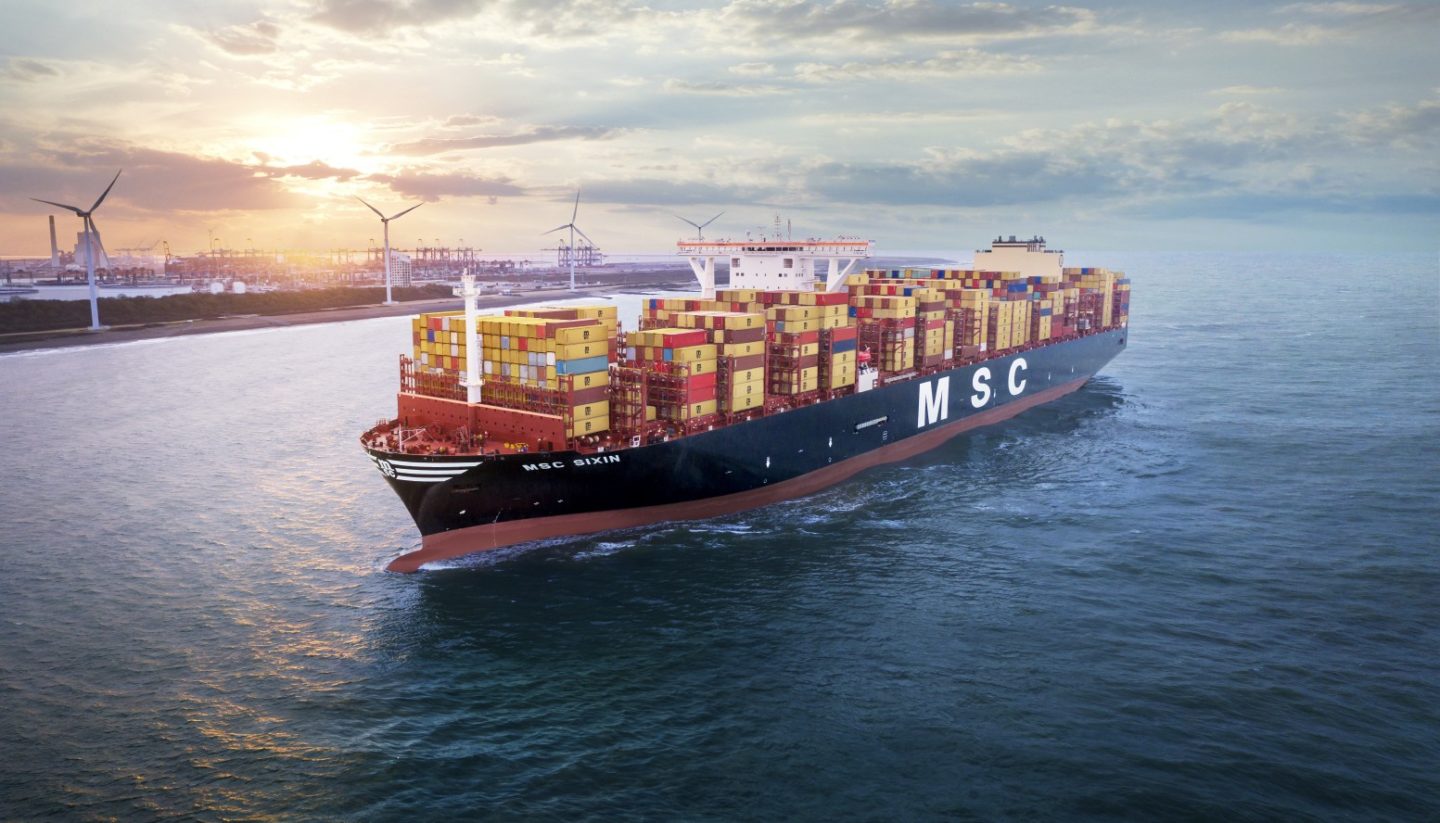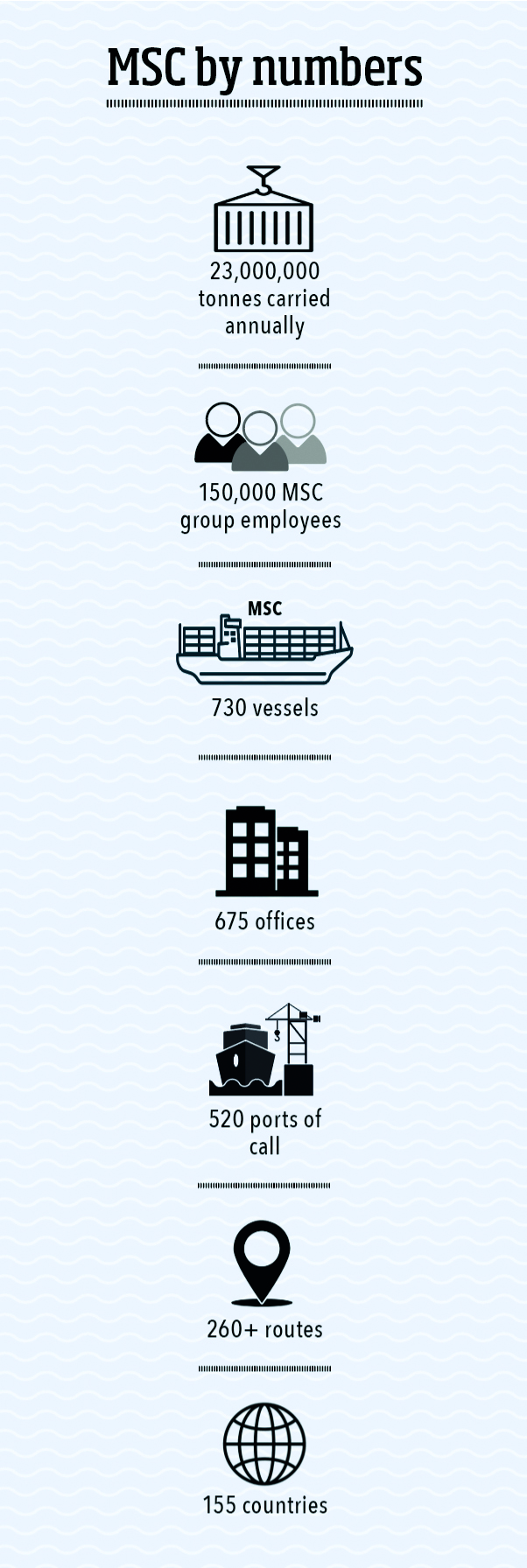
Why leaders should learn to value the boundary spanners
Entrepreneurial talent who work with other teams often run into trouble with their managers. Here are ways to get the most out of your ‘boundary spanners’...
Audio available

Published January 26, 2023 in Magazine • 9 min read
Chief executives are sometimes portrayed as the rock stars of the business community: individuals with extreme confidence and power who believe they can conquer the world.
While this may be true for a few leaders, the majority of CEOs I’ve met are human beings who also have their doubts. And this humility is a good thing, particularly if you are working for a family firm.
When I decided to jump ship from Maersk and join rival MSC Mediterranean Shipping Company in December 2020 as the first non-family CEO, I was careful to not act like an elephant in a glasshouse.
A good friend of mine gave me some sound advice: “Remember: when you start, you may be the prime minister but you’re not the Queen.” I think this is a particularly good analogy for leaders joining family firms. Elected officials, like prime ministers, may come and go but the monarch is constant.
For me, it’s important to pay tribute to the fact that in my role I am standing on the shoulders of giants. Since he purchased his first ship in 1970, Gianluigi Aponte, the founder and owner of MSC, has transformed it into a world leader in container shipping with more than 700 vessels and 150,000 employees. My job is to respect this legacy while making sure MSC remains fit for the future.
Many people have asked me why I decided to leave my previous employer, Maersk, after 25 years. The truth is, I felt I had come to a juncture in life where I had to decide whether I stayed for the rest of my career or moved somewhere else. Maersk is a great company that shaped me as a leader and gave me huge opportunities. I no doubt could have stayed and continued to progress in my career. Yet I had started to feel that I should try something new, that I should see another company and really learn new things. I had a thirst for a fresh challenge and was assessing my options when the call came from the Aponte family asking if I’d be interested in joining as CEO.
MSC doesn’t have as complicated a structure as a listed company ... here, I have a discussion with the family owner, we coordinate closely and make quick decisions. I consider this a privilege

In some ways, this is a journey I have been on before. When I joined Maersk, Danish shipping magnate Arnold Maersk McKinney Moller was gradually retreating from operational involvement in the company. MSC today reminds me in some ways of Maersk 25 years ago when the company still had an active family owner and was growing significantly into other areas.
MSC is in an excellent position and, buoyed by a couple of years of favorable markets, has grown to become the world’s largest container shipping company. The family owner recognized that MSC’s growth, developments, and size called for further leadership competencies and, with an eye to supporting succession, wanted to ensure there was enough time to ensure a steady handover.
There are three aspects of working for a family firm that I’ve grown to particularly enjoy over the past two years.
First is the long-term lens MSC uses to steer its operations. Of course, we need to perform. We cannot grow if we don’t perform. But we are not under constant scrutiny from a mass shareholder base. This has also shaped my leadership style. Like every CEO, you also want to get off to a good start and go after the low-hanging fruit. But I’ve allowed myself to think long term; it helps that I am not obliged to justify my decisions before investors and analysts every quarter.
The second aspect is simplicity. MSC doesn’t have as complicated a structure as a listed company, where to push through a decision you need to deal with many different stakeholders. Here, I have a discussion with the family owner, we coordinate closely, and we make quick decisions. I consider this a privilege.
I’ve allowed myself to think long term; it helps that I am not obliged to justify my decisions before investors and analysts every quarter
Finally, MSC’s success is built upon its strong culture. Many of the firm’s employees have worked here for a lifetime. In some ways, people consider the company an extended part of their family. This is down to the strong sense of loyalty shown by the Aponte family which in turn is reciprocated by the staff. At the same time, MSC has growth infused in its DNA. There’s also a flat hierarchy. You don’t have to go through multiple layers to speak to me. It’s a large company but we are still trying to operate as a very lean and agile enterprise. This is something I’ve kept as I see it as a key ingredient of the culture and something to treasure.
So, what would be my advice to outsider CEOs joining family companies?
You need as much EQ as IQ: I never came to MSC with the mission that I would change the culture. That would have been misguided. My aim is to understand the culture and develop it appropriately for the future rather than turning it upside down. To do this, you need a good portion of emotional intelligence (EQ). It would be very difficult to make the move successfully, as I did, without as much EQ as IQ.
Leave your ego at the door: When joining a family firm, you don’t come in with an ego that outshines the owner. In fact, I wouldn’t recommend that in any context. A person with a very high ego would not be comfortable in this role. You need to read the room first. You have to learn to influence people in a different way over a much longer period of time. This starts with listening and figuring out how you can help others to grow and flourish.
Gain the full confidence of the owner: I have spent a lot of time building trust so that the owner is comfortable with me. It’s a little bit like a marathon. I am not here for a 100-meter sprint, I am here to do a good job over a long time. Before I joined as CEO, MSC had had the same owner and leader for 50 years. It’s not a negative thing to have the owner by your side. It can take some of the pressure away, and if you need sound advice, you have it immediately. Even for people who are working for a less active owner, it’s fundamentally important to build a relationship that is second to none.
The chemistry has to be right: From when I was first approached by the Aponte family to agreeing to take the role it took a long time. I am glad that both sides took the time to do plenty of due diligence. I knew Diego Aponte fairly well; we were competitors but also business partners. We worked together on a shipping alliance with Maersk that still runs today. I have an excellent relationship with Diego, and this is one of the key reasons I am still here. I felt I could work for someone who I respect for his personality and human qualities, as well as for being the owner and a clever businessman. Despite one of us hailing from the north of Denmark, while the other comes from southern Italy, we get along really well. The chemistry has to be right. You want to work with people who you enjoy being around.
Respect and support the employees: In the shipping world, there is perhaps a notorious rivalry between MSC and Maersk. But there is also mutual respect and recognition. Joining MSC, I prioritized getting to know the MSC team and the key players. I chose not to bring in a lot of new leaders out of respect for the culture and the people that had already brought MSC so far. Instead, I wanted to develop and encourage existing employees of MSC. Of course, like any company, we are continuously evolving, and we hire some specialist competencies – but we continue to cherish and develop the people who have been here for a long time. For me, it was important that I build trust with the thousands of individuals who make up MSC. After all, you can have a great strategy, but if you have a poor culture and lack followership, you have nothing.
It’s a large company but we are still trying to operate as a very lean and agile enterprise. This is something I’ve kept as I see it as a key ingredient of the culture and something to treasure
Be mindful of why you were hired: Sometimes it’s easier to bring in an outsider to make required changes, so I am mindful that the Aponte family probably didn’t hire me to simply keep the status quo. It’s about finding the balance to have a constructive dialogue. I like to think that between the family owner and myself, we are good sparring partners.
Be humble and realistic about the challenge: It’s often said that you shouldn’t change industry and function at once, and I am glad that I stayed in the same industry while moving up to the CEO role. As an outsider, I’ve done the analysis of what I believe is the strategic direction as well as the short-term gains for the company and have been able to draw on my experience at Maersk to implement changes that have been effective. I have also been especially fortunate to benefit from favorable market conditions, in terms of customer demand, since mid-2020.”
At the same time, it’s important not to underestimate the strain such a move might take on your personal life. One of the hardest parts of accepting this job has been uprooting my teenaged children and helping them to navigate life in a new country.
A human being that fits the culture: I have learned more in the past couple of years since joining MSC than I had done for a number of years prior. I am proud that I’ve been able to find my place here and build a followership based on mutual respect while also taking steps to reshape the organization. We’ve made a number of acquisitions and added new lines of business, bringing MSC into a better place for the future.
I’ve always had the view that before you come in and judge, you need to put your hands and feet in the mold and feel, smell, and taste the earth. I felt able to do this because MSC was in a strong position. The Aponte family also understood that they didn’t necessarily need and want a leader who was a prototype of themselves, but somebody who could complement them, and a human being who fits into the culture.

July 3, 2025 • by Eric Quintane in Audio articles
Entrepreneurial talent who work with other teams often run into trouble with their managers. Here are ways to get the most out of your ‘boundary spanners’...
 Audio available
Audio available
June 24, 2025 • by Jerry Davis in Audio articles
The tech broligarchs have invested heavily in Donald Trump but are not getting the payback they bargained for. Do big business and the markets still shape US government policy, or is the...
 Audio available
Audio available
June 19, 2025 • by David Bach, Richard Baldwin, Simon J. Evenett in Audio articles
As governments lock horns in our increasingly multipolar world, long-held assumptions are being upended. Forward-looking executives realize the next phase of globalization necessitates novel approaches....
 Audio available
Audio available
June 2, 2025 • by George Kohlrieser in Audio articles
Leadership Honesty and courage: building on the cornerstones of trust by George Kohlrieser Published 17 April 2025 in Leadership • 5 min read DownloadSave Trust is the bedrock of effective leadership. It...
 Audio available
Audio availableExplore first person business intelligence from top minds curated for a global executive audience